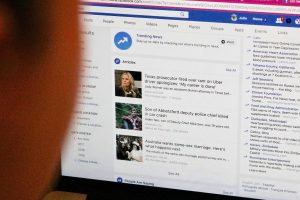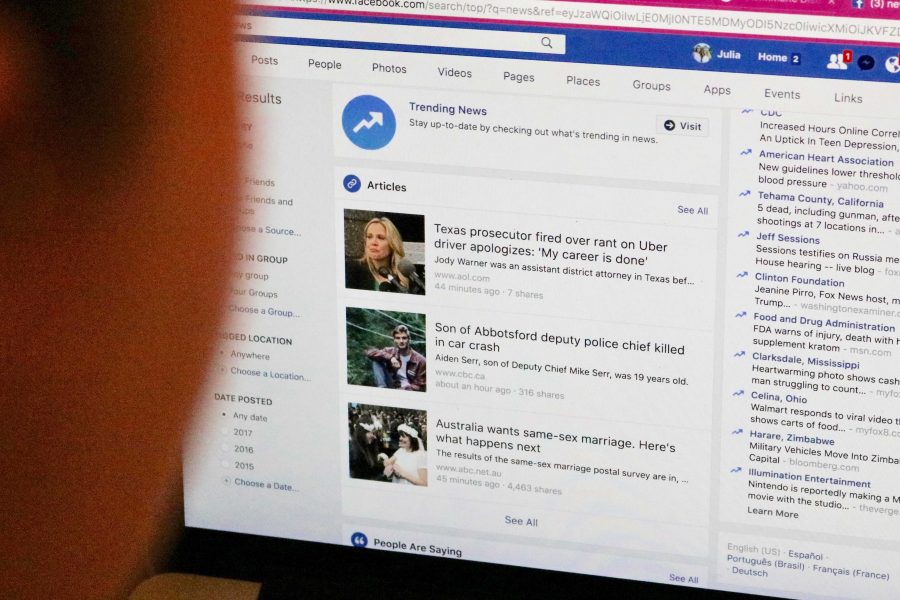By Leonard Chiang

Per the Wall Street Journal, the app’s Instant Articles feature is due for an experimental upgrade in the form of a paid subscription service. The temptation to label this as a PR distraction is strong, but in reality all those with a stake in the Fourth Estate stand to benefit from this latest step in the company’s maturation from tech platform to 21st-century herald.
Even taken just at face value, the development is encouraging insofar as it indicates that Facebook is gradually adapting to, rather than growing complacent in, its outsized sociopolitical role. For instance, this past summer marked the introduction of pre-click suggested reading, with the aim of preempting inflammation stemming from pieces espousing overly biased opinions or outright falsehoods.
This corporate dynamism compares rather favorably to the apparent stubbornness of fellow Fearsome Five member Apple, whose demand for a substantial cut of revenue from the proposed subscriptions has weathered protracted negotiations, to the effect of barring iOS users (such as myself) from participating in the testing phases of the service.
Those working in journalism should also find the change heartening. As Facebook continues fortifying its already expansive claim to the heartland of the media landscape, publishers are well-advised to keep abreast. National Geographic illustrates how times have changed: A legend as periodicals go, the magazine once existed as stacks of living room literature; now, Facebook features it in the decidedly slenderer guise of a smartphone screen.
Participation in the paid subscription service promises much-needed income in addition to a more novel currency, namely, the data that Facebook’s virtually unmatched ability to collect, suggest and predict continually produces in troves. Meanwhile, purists who spurn social media on principle need not worry that Facebook is continuing to squeeze traditional outlets: as of this writing, prominent publications such: as The New York Times and the aforementioned Journal have not signed on, content with their already-robust web operations. Optimistically speaking, such fretting might be entirely unwarranted, should Facebook act with due beneficence. Allotting subscription slots to up-and-coming publications might yield a mutualistic symbiosis between Facebook and fledgling publications and their writers, helping secure an audience for budding journalists.
The concept is not as far-fetched as it may initially seem. As Hurricane Harvey slunk balefully away from Houston, Facebook notably favored the little-known Center for Disaster Philanthropy over the Red Cross. Ultimately, the focus shifts to us, the audience. The introduction of the smartphone 10 years ago promised hitherto unparalleled instantaneity and accessibility; newsstands of old dwarfed the palm-sized purveyors only in size, no longer in reach. Unfortunately, the democratization of information apparently has not brought about consensus; indeed, writers for this and other campus publications have observed or even embodied the prevailing bisection of the American body politic.
Ironically enough, this latest concession from the same virtual stadium that hosted the fractiousness could very well provide a solution. The nature of Internet browsing facilitates balanced consumption— splitting a laptop screen between, say, National Review and Slate is a simpler task than trying to simultaneously watch Carlson and Cooper— and integrating access to a healthy mix of publications into an oft-opened app further eases the process. Concerns about cresting a paywall on a student budget are legitimate but hardly irresolvable. As my current New York Times subscription suggests, educational institutions looking to best feed their students’ minds might back discounted subscriptions— or we might skip a few bar-hops monthly and swap the covers saved for improved credibility in political discussions. Absent either initiative, the proposal is still a boon to readers; in the case of confirmed beta-test participant The Economist, 10 articles monthly is a better deal than the periodical’s in-house paywall.
With any luck, as Facebook and its publishing partners continue refining the social media titan’s ability to serve as nexus of news, we readers will better fulfill the decade-old promises. The pursuit of truth requires regular investments of patience and focused thought— with the means made increasingly available, the audience must not fail to fund the venture.
Leonard Chiang, FCRH ’19, is an engineering physics major from Tolland, Connecticut.







































































































































































































